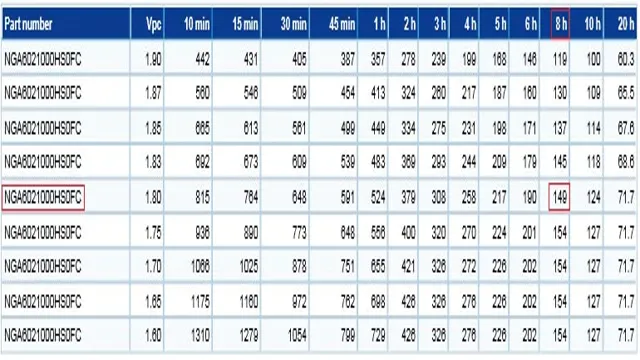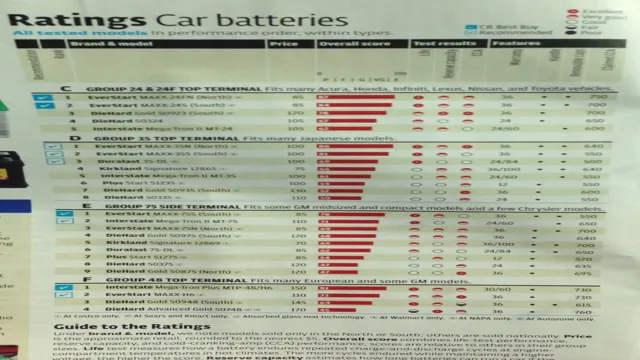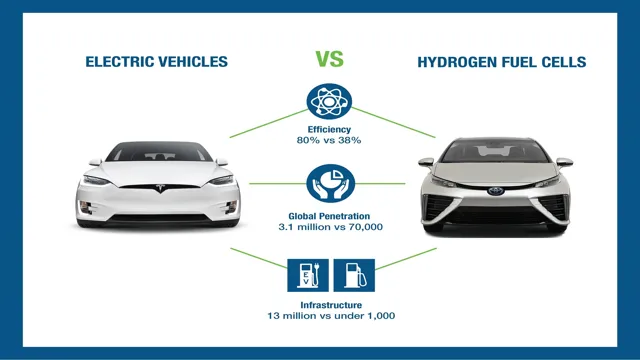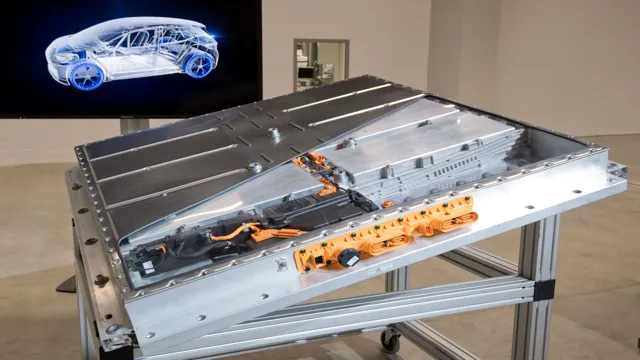Top Electric Car Battery Ratings: Find the Best Power Source for Your Electric Ride!
Are you considering purchasing an electric car? A crucial factor to consider when making this transition is the battery that powers your vehicle. The electric car battery is the heart of the car that provides the energy required to move the vehicle on the road. So, it’s important to ensure you choose the right battery that aligns with your car’s requirements and lifestyle.
Electric car battery ratings determine the efficiency and performance of the vehicle. Various factors, such as the battery’s capacity, range, and charging time, determine the rating. Besides, battery technology is advancing, and there are diverse types of electric car batteries available today.
So, it’s essential to stay informed and make the best choice. In this blog post, we’ll guide you through electric car battery ratings, explaining the factors to consider when choosing a battery, and the different types of batteries available in the market. By the end of this post, you’ll be able to make an informed decision and purchase the right electric car battery for you.
What Are Electric Car Battery Ratings?
Electric car battery ratings refer to the amount of energy that an electric car battery can store and provide to power the vehicle. Battery ratings are typically measured in kilowatt-hours (kWh), which indicates how many kilowatts of energy the battery can deliver in one hour of use. The higher the battery rating, the longer the electric car can go without needing to be recharged.
Therefore, when purchasing an electric car, it is important to consider the battery rating, as it directly affects the vehicle’s range and overall performance. It’s also worth noting that battery ratings can vary depending on the driving conditions, such as speed and temperature, so it’s essential to take those factors into account when evaluating an electric car’s range. Ultimately, paying attention to electric car battery ratings can help drivers make informed decisions when investing in an electric vehicle that meets their needs.
Explaining battery ratings and how they impact electric cars
Electric car battery ratings are essentially the measurement of a battery’s capacity to store electrical energy. Commonly measured in kilowatt-hours (kWh), this rating determines the distance a car can travel on a single charge. So, the higher the battery rating, the longer the range.
More specifically, if an electric car has a battery rating of 75 kWh, it can travel 300 miles on a single charge at an efficiency level of 4 miles per kWh. It’s important to note that battery ratings vary between different electric car models and brands. While some electric cars may have a high battery rating, they may have a higher energy consumption rate, which reduces their range.
Ultimately, battery ratings impact the range and performance of electric cars, making it an important consideration for potential buyers.

Top Electric Car Battery Brands
When it comes to electric car battery ratings, some of the top brands include Tesla, LG Chem, and Panasonic. Tesla’s electric car battery technology is highly regarded in the industry, with their Model S having one of the longest driving ranges on a single charge. LG Chem and Panasonic are also known for producing high-quality, reliable batteries that are used in electric vehicles from a range of manufacturers.
When looking at electric car batteries, it’s important to consider factors such as range, charging time, and overall performance. While these top brands may be more expensive, they can provide better value in the long run due to their longer lifespan and overall quality. Ultimately, it’s important to do research and consider your specific needs and budget when choosing an electric car battery.
Comparison of battery ratings between top brands like Tesla, Nissan, and Chevy
When it comes to electric cars, one of the most important factors to consider is the battery. After all, the battery determines how far you can travel before needing to recharge. Some of the top electric car battery brands in the market are Tesla, Nissan, and Chevy.
Tesla is known for its range and has been able to provide batteries with a range of over 300 miles in a single charge. Nissan, on the other hand, provides batteries with a range of up to 226 miles. Finally, Chevy has been able to provide batteries with a range of up to 259 miles.
While Tesla has the highest battery rating, the other two brands are still able to provide impressive range ratings as well. Ultimately, the decision on which battery to choose depends on each individual’s specific needs and preferences.
Range and Charging Times
Electric car battery ratings are an essential factor to consider when purchasing an electric vehicle. These ratings reflect the vehicle’s range and charging time, which are crucial for choosing the right electric car. The range is the distance an electric car can travel on a single charge, and it’s an important criterion for drivers who cover long distances.
Electric car manufacturers usually provide an estimated range based on several factors, such as the vehicle’s battery size, weight, and driving style. The charging time refers to the time required to recharge the battery fully. It is influenced by the charging infrastructure, battery size, and charging speed.
Fast charging stations can fully charge a battery in less than an hour, and a normal charger can take a few hours. To get the most out of your electric car, it’s important to choose a rating that suits your driving needs.
How battery ratings affect the range and charging times of electric cars
Electric cars are quickly becoming more popular as people realize the benefits they offer. One of the main considerations when purchasing an electric vehicle is the battery rating, which affects both the range and charging times. Range refers to how far an electric car can travel on a single charge, while charging times refer to how long it takes for the battery to charge up fully.
While higher battery ratings typically translate to longer ranges and faster charging times, other factors like the size and weight of the car can also affect these metrics. It’s important to consider your own driving needs and preferences when selecting an electric car with the right battery rating for you. By doing so, you can ensure that your electric car meets your needs and provides a satisfying driving experience.
Battery Degradation
One of the biggest concerns that electric car owners have is the degradation of their battery over time. While electric car battery ratings can be impressive, the reality is that the battery will slowly lose its ability to hold a charge as it ages. This can be influenced by many factors, including the climate in which the car is driven and charged, the frequency and manner in which it is charged, and the overall driving habits of the owner.
It is important to take steps to minimize battery degradation, such as avoiding rapid charging whenever possible and not allowing the battery to fully discharge before recharging it. Additionally, some manufacturers offer warranties or programs to replace batteries that have experienced significant degradation. Overall, while battery degradation is a concern for electric car owners, it is a manageable one that should not discourage anyone from considering an electric vehicle as a viable transportation option.
How battery ratings can affect the lifespan and degradation of electric car batteries
Battery degradation is a well-known issue that is faced by electric car owners. It refers to the gradual reduction of battery capacity over time due to factors such as temperature, usage, and charging habits. The battery rating of an electric car plays a crucial role in determining its lifespan and the rate at which it degrades.
Higher battery ratings generally result in longer lifespan and slower degradation rates. For instance, an electric car with a larger battery pack of 100 kWh is likely to have a longer lifespan than a car with a smaller battery pack of 50 kWh. This is because the larger battery pack has a higher energy density, which means that it can provide more power and endure longer periods of usage.
Moreover, cars with higher battery ratings also tend to have better cooling systems, which further reduces the risk of degradation. It is therefore essential that electric car buyers consider the battery rating when making their purchase decisions to ensure that they get the best value for their money.
Future of Electric Car Battery Ratings
As the demand for electric vehicles continues to rise, so does the emphasis on electric car battery ratings. With features like range, charge time, and overall performance being some of the main concerns for consumers, manufacturers are constantly working on improving and advancing their battery technology. In the future, we can expect to see even more standardized and comprehensive rating systems that take into account not only the basic specifications but also factors like battery life, durability, and sustainability.
As the industry evolves, it will be interesting to see how these battery ratings play a role in deciding which electric vehicles are the most competitive and appealing to consumers. Nonetheless, it is clear that battery technology will be an essential component in shaping the future of the automotive industry in the coming years.
Predictions on advancements and future developments in electric car battery technology.
The future of electric car batteries is bright, with advancements being made regularly in technology to improve ratings. One major area of focus has been increasing battery range. Currently, the average electric vehicle has a range of around 200 miles on a full charge.
However, experts predict that within the next decade, we will see EVs with ranges of 500 miles or more. Additionally, battery durability is an essential consideration. Current batteries can last for about 100,000 miles before needing to be replaced.
However, researchers are striving to develop batteries that can last for up to 1 million miles, similar to those used in commercial vehicles. Besides, researchers are consistently working on improving the charging infrastructure, making it quicker and more accessible. With research and development continuing within the electric vehicle industry, the future is looking quite promising for the advancement of electric car batteries, making EVs more viable alternatives to gas-powered cars.
Conclusion
After diving deep into the world of electric car battery ratings, it’s clear that not all batteries are created equal. From range anxiety to charge times, choosing the right battery can make or break your electric car experience. So, when it comes to battery ratings, don’t just settle for the first one you see.
Do your research, crunch the numbers, and make a clever and conscious choice to keep your electric ride charged and ready for any adventure.”
FAQs
What are electric car battery ratings?
Electric car battery ratings are a measurement of the amount of energy that a battery can store. This measurement is typically expressed in kilowatt-hours (kWh).
How are electric car battery ratings determined?
Electric car battery ratings are determined through a series of standardized tests that evaluate the battery’s capacity, power output, and durability.
What is a good electric car battery rating?
A good electric car battery rating depends on a variety of factors, including the vehicle’s size, weight, and intended use. Generally, a higher battery rating means longer driving range and better performance.
How long do electric car batteries typically last?
Electric car batteries typically last between 8 to 10 years or around 100,000 miles, but this lifespan can vary depending on several factors, such as usage patterns and maintenance. It’s important to regularly check and maintain your electric car battery to maximize its lifespan.






